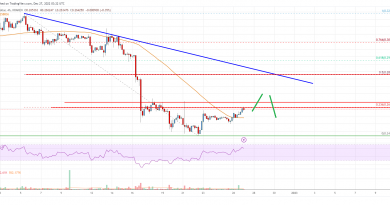Crypto Firms In The US Have Paid Over $3 Billion In Fines With The SEC Being The Largest Collector
- Crypto firms have paid over $3 billion in fines to US authorities since Satoshi Nakamoto launched Bitcoin.
- BlockFi was slammed with the largest fine after it paid $100 million early in the year.
- Payment of fines suggests that the cryptocurrency industry is not as unregulated as critics paint it to be.
The US Securities and Exchange Commission (SEC) and the Commodity Futures Trading Commission (CFTC) are enjoying the larger share of fines paid by crypto firms. Since the industry was created in 2009, firms shelled more than $3 billion.
A recent report from Elliptic, a blockchain analytics firm revealed that US financial regulators have imposed $3.3 billion worth of fines on firms in the cryptocurrency industry. In 2020, the figure stood at barely $2 billion but 18 months later, it nearly doubled in size thanks to increased regulatory attempts to rein the industry.
The report noted that the SEC was the largest enforcer with 70% of all fines going to the agency. The SEC famously hit BlockFi with a $100 million fine for failing to register its lending product.
SEC Chair Gary Gensler noted that the decision “demonstrates the Commission’s willingness to work with crypto platforms to determine how they can come into compliance” with existing laws. In 2020, Telegram was hit with an $18.5 million penalty by the SEC and asked to return $1.2 billion to investors for an unregistered offering of digital tokens.
The Gary Gensler-led Commission has hinted at further attempts to regulate the cryptocurrency industry by announcing the intention to double the size of the Crypto Assets and Cyber Unit.
The CFTC follows the SEC with over $500 million worth of fines issued to crypto firms since 2009. The Financial Crimes Enforcement Network (FinCEN) charged BitMEX $100 million for violations of the Bank Secrecy Act (BSA) while the Office of Foreign Assets Control has begun leaving its mark in the industry with fines of nearly $1 million.
The bulk of fines revolves around unregistered securities offerings, fraud, and anti-money laundering violations. The fines often bear the designation of civil penalties, disgorgements, and restitutions with Steve Chen’s 2017 settlement for fraud charges topping $217 million.
The effects on the industry
For an industry that is barely 13 years old, a $3.3 billion fine is pretty worrisome but analysts argue that it is a sign of growth. According to the co-founder of Elliptic, Tom Robinson, “these penalties have not slowed down the crypto industry” rather, they provide investors with the confidence to proceed.
Robinson claims that the fines are also an indicator of improving regulation over the crypto space. The industry has been criticized for having an unclear regulatory framework to guide it and has earned the title of the “Wild West”.
“These fines demonstrate that crypto is far from regulated. Existing laws and regulations are already being used to limit and penalize illicit use of crypto assets,” said Robinson.
The fear of fines has led to firms treading with caution in their dealings within the space. For example, Coinbase abandoned a proposed lending project after the SEC threatened to sue the exchange.
Source: Read Full Article



